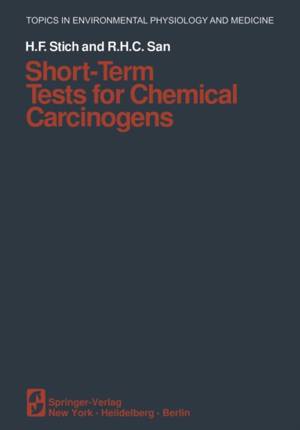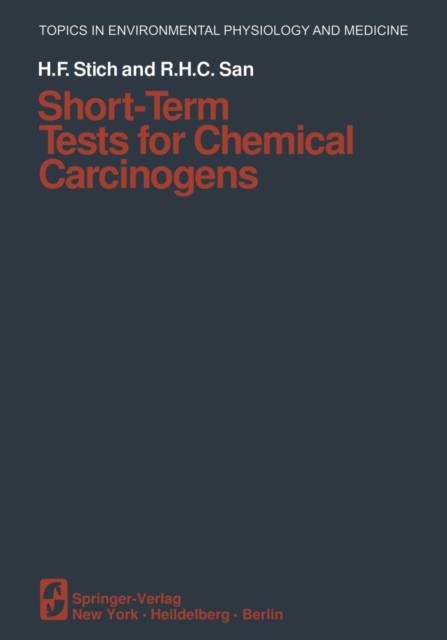
Door een staking bij bpost kan je online bestelling op dit moment iets langer onderweg zijn dan voorzien. Dringend iets nodig? Onze winkels ontvangen jou met open armen!
- Afhalen na 1 uur in een winkel met voorraad
- Gratis thuislevering in België vanaf € 30
- Ruim aanbod met 7 miljoen producten
Door een staking bij bpost kan je online bestelling op dit moment iets langer onderweg zijn dan voorzien. Dringend iets nodig? Onze winkels ontvangen jou met open armen!
- Afhalen na 1 uur in een winkel met voorraad
- Gratis thuislevering in België vanaf € 30
- Ruim aanbod met 7 miljoen producten
Zoeken
Short-Term Tests for Chemical Carcinogens
€ 106,95
+ 213 punten
Omschrijving
The recent surge of interest in designing, validating, and implementing short-term tests for carcinogens has been spurred by the fairly convincing correlation be- tween the carcinogenicity and mutagenicity of chemicals and physical agents and by the assumption that DNA alteration, mutations, and chromosome aberrations are somehow involved in neoplastic transformation. Moreover, it has been tacitly assumed that the mutagenic capacity alone of compounds would induce regulatory agencies to pass rules for their removal from the environment and would lead the public to avoid them. The actual response, however, is quite different. Governmental departments shy away from making any decisions on the basis of in vitro test systems. The public at large is becoming irritated by daily an- nouncements that many of their cherished habits could adversely affect their health. Industry appears to feel threatened and may reduce its search for new beneficial chemicals. The reluctance to accept wholeheartedly the mutagenicity tests for the detection of carcinogens is partly due to uncertainty about the in- volvement of mutations in neoplastic transformation, partly due to the present difficulty of extrapolating results from various endpoints obtained on numerous organisms to man, and partly due to a multitude of complex events that lead in vivo to the evolvement of benign or malignant tumors.
Specificaties
Betrokkenen
- Uitgeverij:
Inhoud
- Aantal bladzijden:
- 518
- Taal:
- Engels
- Reeks:
Eigenschappen
- Productcode (EAN):
- 9781461258490
- Verschijningsdatum:
- 8/10/2011
- Uitvoering:
- Paperback
- Formaat:
- Trade paperback (VS)
- Afmetingen:
- 178 mm x 254 mm
- Gewicht:
- 925 g

Alleen bij Standaard Boekhandel
+ 213 punten op je klantenkaart van Standaard Boekhandel
Beoordelingen
We publiceren alleen reviews die voldoen aan de voorwaarden voor reviews. Bekijk onze voorwaarden voor reviews.










